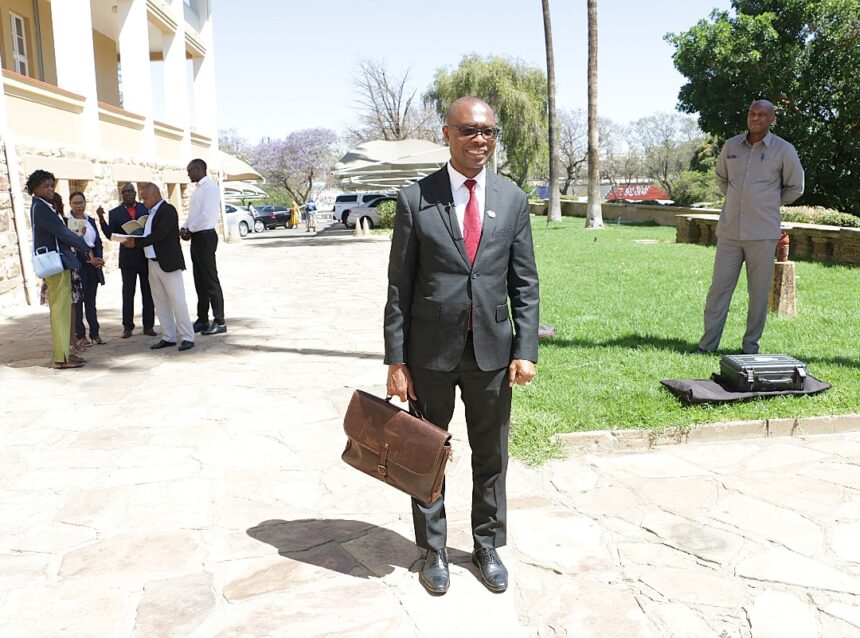Uncertainty reigned once more in the National Assembly as no quorum could be established for the tabling of the mid-term budget yesterday.
National Assembly Speaker Peter Katjavivi described the situation as “unbearable” two days in a row. The Speaker also expressed disappointment over the general conduct of parliamentarians, which often results in sessions starting late, and sometimes in important meetings being postponed.
“I expected most of the members to be in the House today. I have expressed my displeasure, and this is something we hope is not repeated,” said Katjavivi yesterday during an interview after the session was postponed.
Although a working quorum was met, the quorum of at least 49 parliamentarians was needed for the tabling of legislation, and this was not achieved as the August House needed at least two more members for the tabling of the mid-year budget.
This situation meant that Finance and Public Enterprises Minister, Iipumbu Shiimi, had to wait once more to table the legislation that reallocates revenue to necessary and emergency areas.
He has emphasised that the Mid-Term Budget Review is not a new budget, but only a reallocation of existing resources. As such, the Mid-Term Budget is rather an opportunity for government to reallocate revenue budgeted at the beginning of the year.
Inna Hengari, a Popular Democratic Movement lawmaker, said she was happy that Katjavivi addressed the lack of commitment by parliamentarians.
“There is basically a budget for an entire country that is being held up due to the lack of members,” said Hengari, who proposed strict measures to hold Members of Parliament accountable. She added there should also be a clear distinction between ordinary parliamentary members and voting members.
Commenting on the lack of quorum, Mines and Energy minister, Tom Alweendo, said parliamentarians’ behaviours are contrary to the expectations of the public. “If you are a Member of Parliament, then you need to set a good example,” he said.
Chantelle Husselmann, country partner at the auditing and tax advisory firm PWC, noted the Mid-Term Budget Review is a necessary exercise not only for the national budget, but also as a regular exercise for businesses and household budgets. She added the budget review provides valuable data in terms of revenue-collection and expenditure targets.
Husselmann further noted that focus is expected on areas of drought relief, as well as boosting social sectors and a potential tax reduction for small businesses.
Meanwhile, the Institute for Public Policy Research (IPPR) said they expected Shiimi to address healthcare, lower taxes, infrastructure improvement and poverty alleviation through a basic income grant.
“Civil society organisations (CSOs) believe the national budget is a powerful tool that can be used more effectively to address systemic poverty, improve living conditions and promote social equity in Namibia,” reads an IPPR briefing paper.
The IPPR paper summarises civil society submissions and suggestions regarding budget priorities made to the finance ministry. They further noted that CSOs emphasised the importance of strengthening budget participation mechanisms to enhance government accountability, and ensure effective policy implementation.



